
Can this internet wiz bring this ancient Jewish ritual to the world?
When my son was born 10 years ago, I decided to bring back a tradition I had cherished as a child but somehow lost as an adult. We started to light candles at sundown every Friday night. I also took him to Tot Shabbat on Saturday mornings and relished in the spiritual bonding the ancient melodies induce. But when services ended, that often was the end of our Shabbat. He would go to parties or play in tennis tournaments as though it was just a regular weekend afternoon.
I began to sense something more was needed when, during our long and harsh New York winters, video games became the default activity after services. All the beauty of Shabbat quickly was lost to the blasts of “Fortnite” gunfire. Meanwhile, the negative effects of our tech-based lives were becoming apparent — creating not just a culture of outrage, but a culture of digital gratification, a spiraling addiction to “likes” and followers.
So it was with great interest to discover Arianna Huffington — founder and CEO of Thrive Global and the internet icon who set the media world on fire with Huffington Post — was addressing burnout and entering the Shabbat world.
Launch of Thrive Global
Huffington created Thrive Global in 2016 to give people and businesses practical tools to avoid burnout and boost well-being and productivity. “We are at an inflection point in history where technology has granted us powers that accelerate the speed of life beyond our capacity to cope,” Huffington wrote in her welcome letter on the Thrive Global homepage. “We’re more aware than ever that this way of living leaves us depleted, distracted and unfulfilled.”
Sections on the site include “Well-Being,” “Wisdom,” “Wonder” and “Purpose.” Last year, the big news was that Huffington, who is not Jewish, added a section called “Shabbat: A Day of Rest.”
“Arianna approached me at a bar mitzvah where I was officiating and she was a guest,” said Rabbi Jay Moses, who serves as the section’s Editor-at-Large. “She proposed Shabbat: A Day of Rest, with the Hebrew pronunciation rolling off her tongue. I was impressed with the authenticity of her approach to the idea, including the integrity of keeping the original Hebrew.”
An initial forage through the section can be a bit jolting. Many of the pieces are written by rabbis who quote the Bible and Talmud as though they were writing for a Jewish paper. But there is also a genuine level of acceptance that today’s problems with technology can be partially solved with this weekly Jewish tradition. “Shabbat is the greatest gift of the ancient Jewish people to human civilization,” Moses writes.
“Shabbat was a radical and beautiful innovation our ancestors brought to humanity,” Rabbi Angela Buchdahl of Central Synagogue in New York City writes.
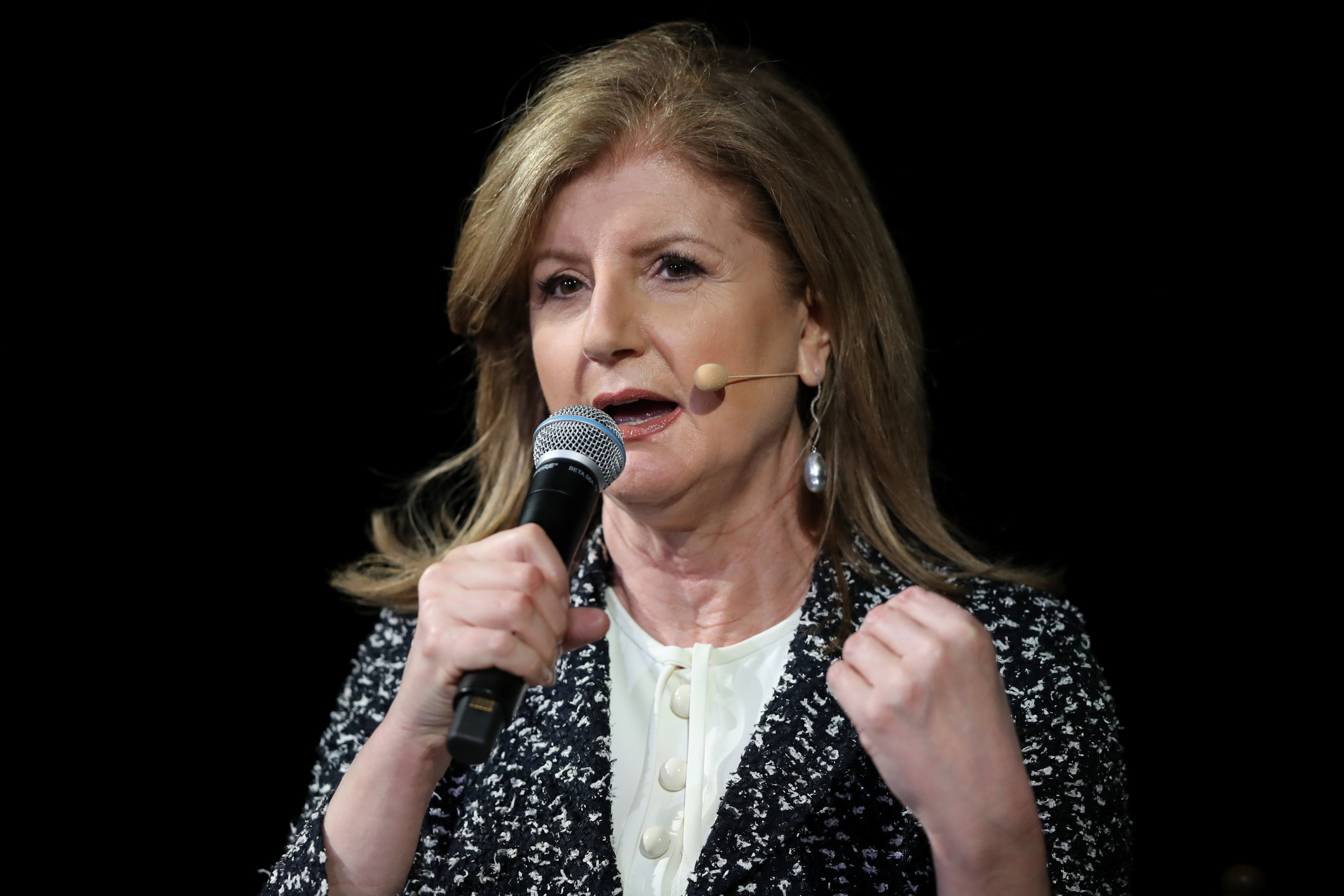
The Beginning of a Revolution?
“There is a realm of time,” Rabbi Abraham Joshua Heschel writes in his 1951 classic book, “The Sabbath,” “where the goal is not to have but to be, not to own but to give, not to control but to share, not to subdue but to be in accord.”
Huffington was not the first to see that the essential humanity of Shabbat can be applied universally; in fact, one might say we’re in the midst of a Shabbat revolution.
In 2010, a small group of artists, writers, filmmakers and media professionals called ReBoot who, while not particularly religious, “felt a collective need to fight back against our increasingly fast-paced way of living,” created the Sabbath Manifesto, which includes such edicts as “Avoid technology,” “Connect with loved ones” and “Give back.” ReBoot also launched the National Day of Unplugging in 2009.
In 2013, Chief Rabbi Warren Goldstein of South Africa called on his community to come together for one complete Shabbat. The result was so successful, it turned into the Shabbat Project, which has thus far united Jews in more than 1,000 cities and almost 100 countries. “The idea is simple,” the website states, “Jews from all walks of life, from across the spectrum of religious affiliation, young and old, from all corners of the world — come together to experience the magic of one full Shabbat kept together — in full accordance with Jewish law.”
In 2014, One Table was launched with the goal of connecting Jewish millennials and others to the Shabbat meal experience. The initiative revolves around promoting and enabling Friday-night dinners, re-created in any way that brings “joy and connection,” executive director Aliza Kline told the Chicago Tribune.
Interspersed with these initiatives have been calls for “technology Sabbaths” by celebrities, and numerous articles on digital detoxes in which Shabbat is called “an act of mindfulness.” Vogue ran a piece in March 2017 called “How to Host a Shabbat Dinner and Why You Should.”
Even Pope Francis, in a 2018 documentary, opined on the merits of the Jewish day of rest: “We live with the accelerator down from morning to night. This ruins mental health, spiritual health and physical health. More so, it affects and destroys the family and therefore, society. ‘On the seventh day, He rested.’ What the Jews followed and still observe, was to consider the Sabbath as holy.”
The granddaddy of Shabbat initiatives was launched in the late 1990s as “Shabbat Across America,” which continues to bring Jews from across the religious spectrum to taste the restorative powers of Judaism’s holy day.
“Shabbat is not just a replacement for Prozac. It is a day that reminds us of the very purpose of human existence.” — Rabbi Chaim Steinmetz
An Antidote to Digital Addiction
One word summarizes the backlash against modern technology: enough. We need to slow down and regain our humanity. It’s ironic that it took a media maven and technology entrepreneur such as Huffington to see Shabbat as the perfect antidote to our digital addiction.
It also makes Huffington an ideal spokesperson for the beauty and value of this ancient ritual.
Perhaps not surprisingly, she sees Shabbat as helping us thrive, not just rest. The science is clear and conclusive, she writes: “When we prioritize our well-being, our decision-making, creativity, productivity and performance dramatically improve across the board. Taking care of ourselves, far from detracting from success, enhances productivity and creativity.”
One of the paradoxes of the internet is that it preys on our need for human connection. “We’re hard-wired to connect, so we’re tempted by technology,” Huffington told the Journal. “But the connection that it offers is often unfulfilling, and, as the research shows, overuse can make us unhappy and more prone to anxiety and depression.”
It’s sobering to realize that our minds are so busy trying to process gratuitous information that we forget important things, like kindness. Our lives revolve around digital clicks. And like any addiction, the clicks offer only temporary jolts of pleasure that need constant refills.
“We’re being controlled by something we should be controlling,” Huffington said. “We’re losing more and more of ourselves. We haven’t yet learned how to regulate and manage this increasingly powerful and addictive new element in our lives to serve our best interests.” Her bottom line: “We need to change our relationship with technology — to make disconnecting not only an option, but a regular part of our lives.”
The Boundaries of a Movement
“The idea of taking a day of rest is woven into the very fabric of existence,” Huffington writes in her introduction. “And some version of rest, downtime, contemplative thought, is part of every spiritual and philosophical tradition.”
“Obviously,” she continues, “in the biblical narrative, God didn’t need to take the 7th day off — but he was sending us a message. Because, unlike him, we do need to. But in our modern world, the worries and concerns and duties of those other six days have crept into the 7th, creating a culture of non-stop, 24/7 work.”
To be clear, the Shabbat section in Thrive Global is not about Jewish law and do’s and dont’s. “It’s about celebrating the ideas of Shabbat in whatever form they take in people’s individual lives,” Huffington writes.
It’s fair to ask, however: Is there a risk that in the mainstreaming of Shabbat, we will dilute an ancient tradition?
“The renewed interest in Shabbat is meaningful and an excellent way to bring biblical wisdom into the 21st century,” Rabbi Chaim Steinmetz of the Orthodox Congregation Kehilath Jeshurun in New York City told the Journal. “And yet, I worry. I worry that by reducing Shabbat to a psychological palliative of de-stressing and disconnecting, we have taken away its true meaning. Shabbat is meant as a day of humility and dignity. It is the day in which humanity humbly recognizes the God of creation and encounters a world that is much larger than themselves. At the same time, it is a day in which humanity, created in the image of God, is recognized as a free and dignified being who serves no master other than God.
“Shabbat is not just a replacement for Prozac,” he added. “It is a day that reminds us of the very purpose of human existence.”
“We’re hard-wired to connect, so we’re tempted by technology. But the connection that it offers is often unfulfilling, and, as the research shows, overuse can make us unhappy and more prone to anxiety and depression.”
To her credit, Huffington does make an effort to honor Shabbat’s religious roots. “The etymology of ‘Shabbat,’ ” she writes, “comes from the root Shin-Bet-Tav, and the idea is associated with two other commands, to remember (zachor) and to observe (shamor). In our always-on culture, it’s very easy to do neither.”
Still, roots or no roots, the reality is that the Orthodox version of Shabbat, which prohibits any use of technology from sundown Friday night to past sundown Saturday night, is not for everyone. For the Shabbat revolution to catch on, it will have to focus, at a minimum, on the essential human benefits of this Jewish idea.
Indeed, one of the key points of Thrive Global’s Shabbat section is that Shabbat is an idea meant for everyone. “Interestingly,” Moses writes, “the Hebrew Bible, which is often very concerned with the unique and distinct covenantal responsibilities of the Israelite tribe, explicitly includes the broader community in its mandate to celebrate Shabbat. Employees, guest sojourners, even cattle are to be granted a day of rest along with the Jewish household.”
Moses said he has two goals for the section. “One is to inspire people to live lives of greater health and more balance, so they can contribute to the healing of a world badly in need of repair. The second is to spread and promote the wisdom of Jewish texts and tradition from the last 3,000 years, which has so much to offer the contemporary seeker.”
Silence of the Soul
One clear way Shabbat can help the contemporary seeker is in lengthening our diminishing attention spans. In his piece for the section, Rabbi Andy Kahn of Congregation Emanu-El in New York, addresses this challenge: “Where we place our attention is central to the Jewish understanding of relating to God. ‘Shuv’ refers to the desired state: turning our attention to God. ‘Panah’ is the undesired state: to project our attention toward other gods. Our ancient ancestors knew that what we turned to — where we place our attention — predicted our future.
“It is this responsibility to control our attention that is the crux of the covenant between God and the Israelites,” he continues. “And this choice has never been more present and clear than it is today.”
Kahn quotes Matthew Crawford at the Institute for Advanced Cultural Studies, who has studied how constant noise has disrupted our collective attention. “In the process, we’ve sacrificed silence — the condition of not being addressed.”
The silence of Shabbat doesn’t just allow us to think and feel deeply, Kahn writes, “it’s a key Jewish way to attend to God.” He discusses the Book of Kings and how Elijah the prophet encounters God on Mount Horeb. “Elijah does not find God in all of the overtly distracting explosions of power through the elements (wind, earthquake, fire). Instead, Elijah finds God in the silence after — in the respite from those attention-demanding phenomena.”
“The Torah pleads with us to make room for just this kind of silence in our lives,” Kahn continues. “Rather than returning to the silence where God dwells, our attention is constantly pulled outward — toward the manifestations of power, the distractions, the shining totems built particularly to capture our attention.”
To listen inwardly to God, the Torah tells us, we need only seek out inner silence. “These moments of inward attention bring us to God’s greatest gift, shalom, a holistic peace,” Kahn writes.
In this space of holistic peace, we can better manage the stress of modern striving. Rabbi Joshua Rabin, a director at the United Synagogue of Conservative Judaism, writes: “When we unplug on Shabbat, we make a conscious rejection of the world of exhaustive comparison, and simply live as though nothing else matters but deep relationships and community. If we succeed in doing this, we will take one small step toward demonstrating Shabbat’s capacity to elevate every aspect of our lives, shaping a world that now, more than ever, needs a little less digital self-gratification, and a little more communal sanctification.”
“The Talmud teaches that Shabbat provides a person with an ‘extra soul.’ Shabbat is a day each week when each of us has the opportunity to utilize a double portion of our best selves.”
The Shabbat section also includes contributions from those who are not rabbis. “Growing up in the south of Spain, this ritual was handed down to us as one hands over the crown jewels,” Michele Attias writes. “Shabbat was our one day a week of reflection, spirituality and family time; just like my grandparents and great-grandparents had observed, all the way up to the Spanish Inquisition.
“As the sun began to set on a Friday afternoon,a silence descended and the peace that emerged was tangible.
“This tradition has created a sense of belonging and served as a strong foundation for Jews to survive pogroms and persecution over the years. It is an element that has bonded us together through generations when we hit one wall of uncertainty after another, it built the seeds of resilience, which grew into a ritual that has never had an expiry date.”
Buchdahl wants us to better control our time. She writes: “If we have no blueprint for our time, if we do not stop to reflect on the ultimate purpose of all that building, we may wake up one day and realize we’ve built a life without a soul. Judaism teaches us how to be the architect of our time. The Jewish view of time is refreshingly countercultural.
“Judaism divides time into two distinct categories: the sacred and the ordinary. In ordinary time, we are encouraged to busy ourselves with the important work that enables us to be fed and sustained, healthy and constantly growing. But sacred time is completely different. Sacred time is designed to slow us down, make us fully present, enable us to see ourselves and the world around us as Whole. Perfect. Finished.
“Sacred time is a time to just be.”
“In the biblical narrative, God didn’t need to take the 7th day off — but he was sending us a message. Because, unlike him, we do need to.”
The Rhythm of Nature
I hope that the section will eventually include former Chief Rabbi Lord Jonathan Sacks’ thoughts on Shabbat and nature. “There is an integrity to nature,” Sacks wrote in his April 2017 sermon “The Light We Make.” “Everything has its proper place, its ecological niche, its function and dignity in the totality of being. Holiness consists in respecting boundaries and honoring the natural order.
“The story of creation tells us that nature is not a blind struggle between contending forces, in which the strongest wins and power is the most important gift. To the contrary: The universe is fundamentally good. It is a place of ordered harmony, the intelligible design of a single creator. That harmony is constantly threatened by humankind.”
He notes that Shabbat, “the day of limits and holiness,” teaches us that there are boundaries to creation. “The ability to create goes hand in hand with the ability to destroy. Every new technology can be used to heal or harm. Every power can be turned to good or evil.
“We believe that God wants human beings to exercise power: responsibly, creatively, and within limits set by the integrity of nature.”
Blessed to live very close to Central Park, I have come to see nature as not just essential to our emotional health, but our best model for bringing back civil society. Nature is not perfect; we need rules and laws. But the basic principles of nature — authenticity, rhythm, harmony, restraint — underlie character, decency and dignity.
Social media is the opposite of nature — a tech jungle geared to incite ever-escalating tribal wars. But we evolved for competition, not incessant war.
“In the ceremony of Havdalah,” Sacks wrote in his March 2008 sermon “The Light of Holiness,” “we make light on the eighth day, the start of human creativity, and in so doing, we become God’s partners in the work of creation. We begin by creating light and proceed to make distinctions.
“This is a vision of great beauty. It sees the world as a place of order in which everything has its place and dignity within the richly differentiated tapestry of creation. To be holy is to be a guardian of that order, a task delegated to us by God.
“In the midst of what can sometimes seem to be the dark chaos of the human world, our task is to create order and light.”
To Steinmetz’s point, Shabbat is not just an occasion to recharge and re-center. It is also a time to truly listen to the inner silence — a reminder that our fundamental task is to create light, and we can’t do so if we are mired in the toxicity of technology.
The fact that Huffington’s embrace of Shabbat has emerged at this time may hold a hidden message for Jews. Perhaps subconsciously, she is telling us that the best response to the hatred of Jews is to stand tall and double down on our tradition — and share it with the world.
The Elephant in the Room: Anti-Semitism
One of the great ironies of this budding Shabbat revolution is that it has come at a time of rising anti-Semitism. While more and more Americans are embracing a beautiful Jewish tradition, more and more Americans are embracing that age-old animosity toward Jews.
The fact that Huffington’s embrace of Shabbat has emerged at this time may hold a hidden message for Jews. Perhaps subconsciously, she is telling us that the best response to the hatred of Jews is to stand tall and double down on our tradition — and share it with the world. Shabbat can bring out the best in humanity. As Buchdahl writes, “What is at stake here is not just our sanity. It is our very humanity.”
I traced those words on a bench in Central Park, absorbing the beauty of nature. And then I caught a Facebook photo of a friend out in the Hamptons, and I began to feel sad, mad at myself for not making an end-of-summer Hamptons stay happen for my son.
As I began to gather my stuff, I noticed a mother from my son’s school walking by slowly, debilitated. Her cancer had returned; she was headed to Mount Sinai Hospital for treatment. In addition to my sorrow for her, I felt shame for what I had been thinking about.
I had what I will now call a Shabbat moment. God gave us Shabbat to be able to feel many things, but perhaps most importantly, gratitude. Technology is trying its hardest to take that away. We need to be able to stay in that elegant serenity — the silence of the soul — no matter what our friends are doing, no matter what toxic events are happening in the world. Because it is only in that place, that moment, that we can truly give the light of Shabbat back to the world.
Shabbat Shalom.
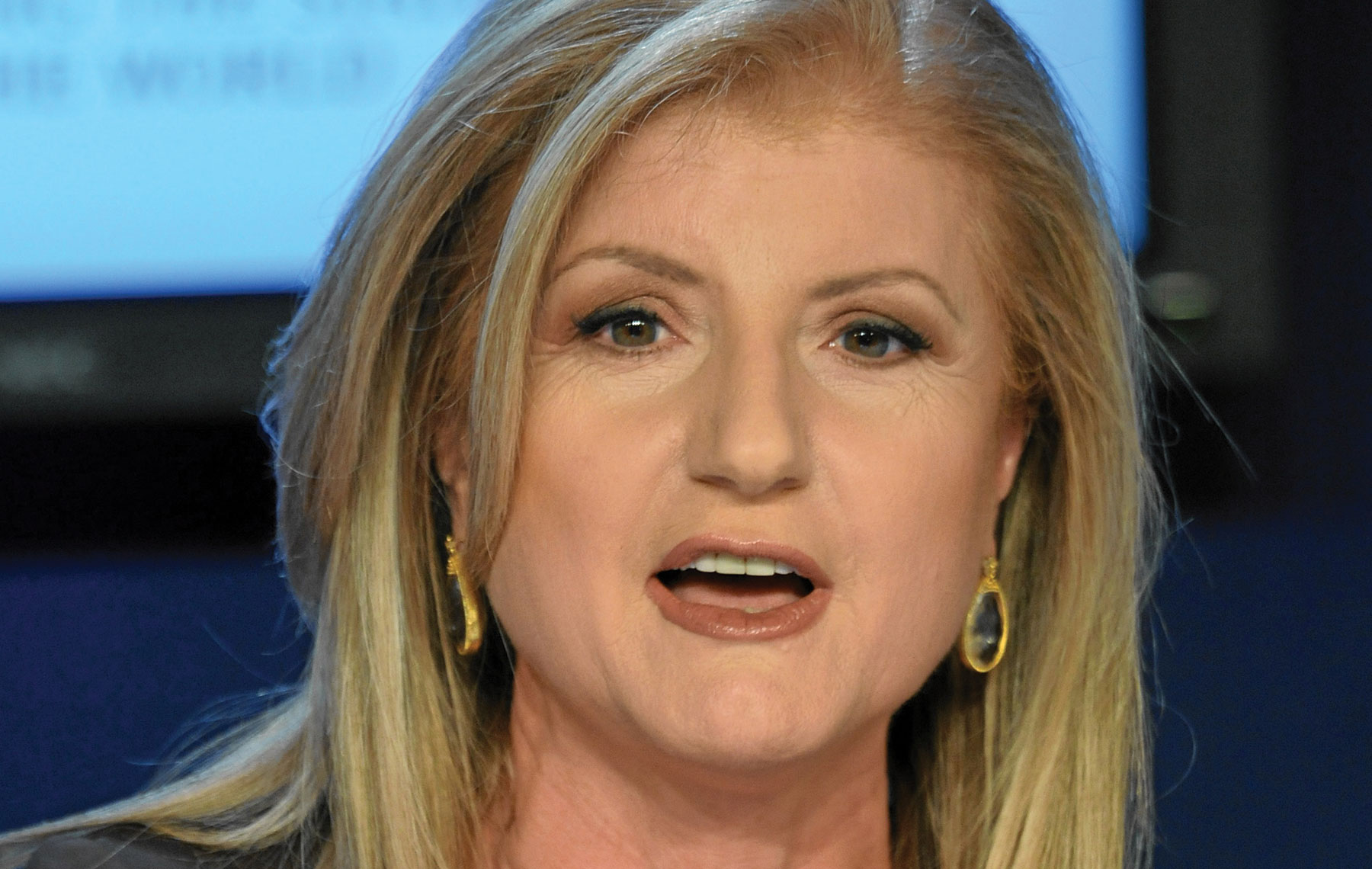
Q & A with Arianna Huffington
JJ: What inspired you to create Thrive Global?
A.H.: The inspiration goes back to 2007, when I collapsed from exhaustion and broke my cheekbone. After that, I became more and more passionate about the connection between well-being and productivity. And that led me to write my two books, “Thrive” and “The Sleep Revolution.” And as I went around the world speaking about them and our culture of stress and burnout, I saw how deeply people wanted to change their lives. So I wanted to go beyond just speaking out and raising awareness; I felt the need to turn this passion into something real and tangible that would begin to help people change their daily lives. It was a call to action I just couldn’t ignore, and so I founded Thrive Global.
JJ: How is Thrive Global doing? What has been the reaction?
A.H.: The response has been amazing, and we’re continuing to expand all over the world. We’ve now launched Thrive in India and Greece, and have given trainings in five continents. We also just launched our new behavior-change app, Thrive, which helps boost well-being and performance with our science-backed, too-small-to-fail Microsteps.
JJ: What inspired you to create a Shabbat page?
A.H.: The principles of Shabbat — taking time to disconnect from our work to connect with our loved ones and focus on what gives us value and meaning in our lives — are central to Thrive Global. So it made sense to jump at the chance to amplify the movement to spread the vital messages of Shabbat.
JJ: You could have called it the Sabbath page. Why the Hebrew? Is the intent for it to be on Friday eve/Saturday and include the Jewish rituals, such as candle lighting?
A.H.: The name was chosen along with the section’s Editor-at-Large, Rabbi Jay Moses, and is about celebrating the ideas of Shabbat in whatever form they take in people’s individual lives.
JJ: What was your relationship to Shabbat before this?
A.H.: I feel blessed to have been to many Shabbat dinners at the homes of my friends and have always loved the experience.
JJ: What has been the reaction thus far to the Shabbat page?
A.H.: The reaction has been fantastic. People all over the world are hungry for tools that will inspire and empower them to unplug and connect with what brings meaning and purpose to their lives.
JJ: What were the main points of your talk to Hebrew University’s NEXUS: ISRAEL conference? How do you tell a tech conference to unplug?
A.H.: It’s about the effects of technology on our lives and how we can take control of that relationship. It’s definitely not about being anti-technology, but about how we can maximize the benefits of technology to maximize our performance and well-being. And, more generally, how we can lead a full life of wisdom and purpose.
JJ: What does the research show to be the most damaging aspects of spending too much time online in general, and social media in particular?
A.H.: In short, what the science shows is that it’s simply terrible for both our mental health and physical health, which, of course, are deeply connected. We’re hardwired to connect, so we’re tempted by technology. But the connection that it offers is often unfulfilling and, as the research shows, overuse can make us unhappy and more prone to anxiety and depression.
JJ: To what extent do you think it has contributed to our current hyper-polarized, hostile political environment?
A.H.: It’s almost certainly contributed. Studies show that empathy levels have been declining since the ’80s, right around the time when computers entered our lives. And we know from the science that screens and overuse of social media diminish our empathy and our ability to read social cues. This is a recipe for polarization.
JJ: What do you say to those who say social media is how they relax, that it’s more relaxing than having to be “on” in real life?
A.H.: The question is: What is that time on social media taking away from? There’s an opportunity cost to our screen time. And the alternative to being on social media isn’t just having to be “on,” it also includes downtime in which we can connect with ourselves, which is vitally important to our well-being.
JJ: Any plans for the future of your Shabbat track?
A.H.: “With the High Holidays approaching, we look forward to continuing to move to the foreground the conversation around the teachings of Shabbat and the benefits of unplugging. We’ll continue to refresh the section with new content on these always relevant themes and promote new pieces across our social media platforms. And we would love for Jewish Journal readers to submit their own stories of practicing Shabbat or how they unplug and connect with themselves and others, and we’d love to feature them on Thrive!”
Karen Lehrman Bloch is an author and cultural critic living in New York City.

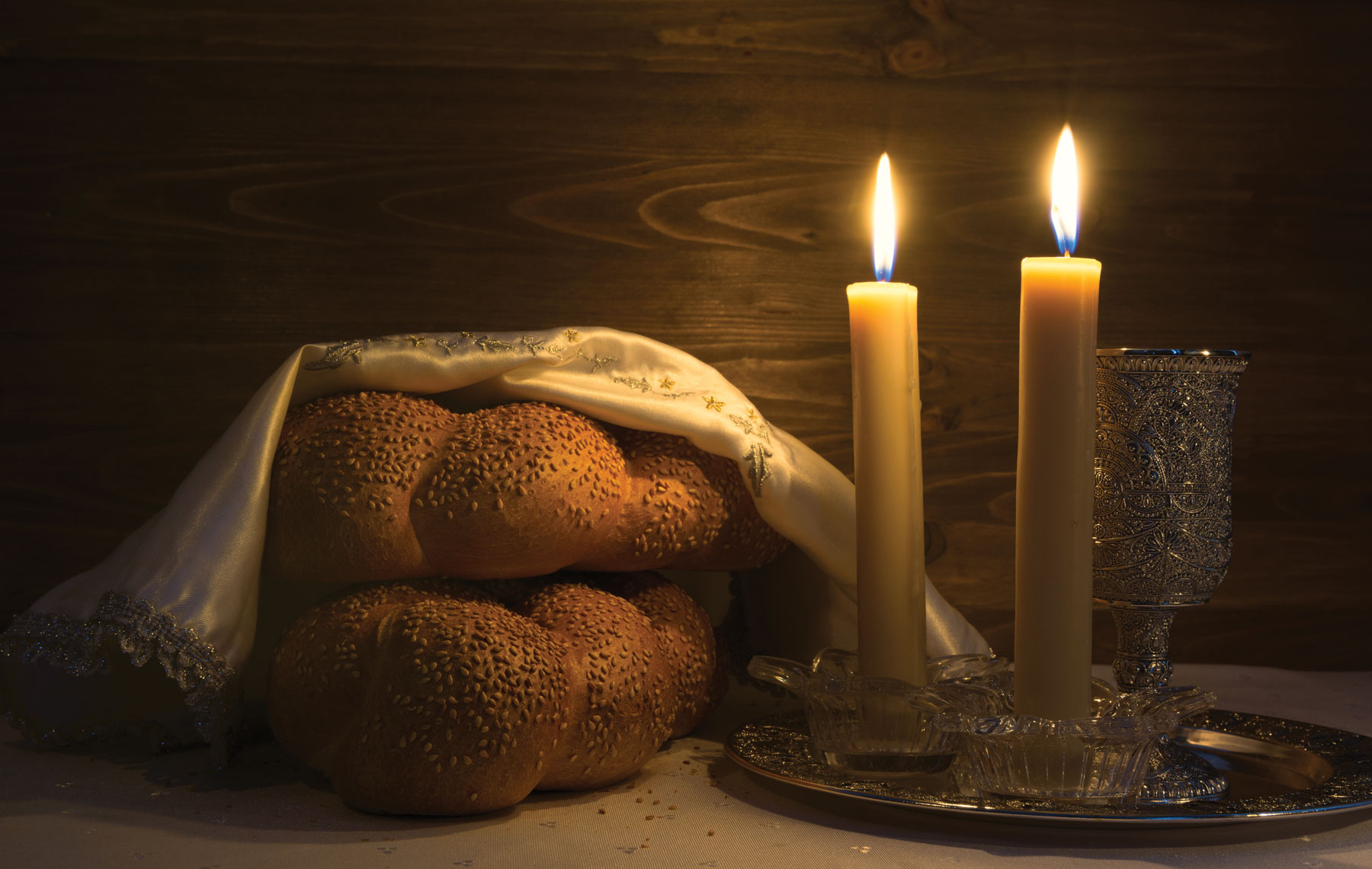














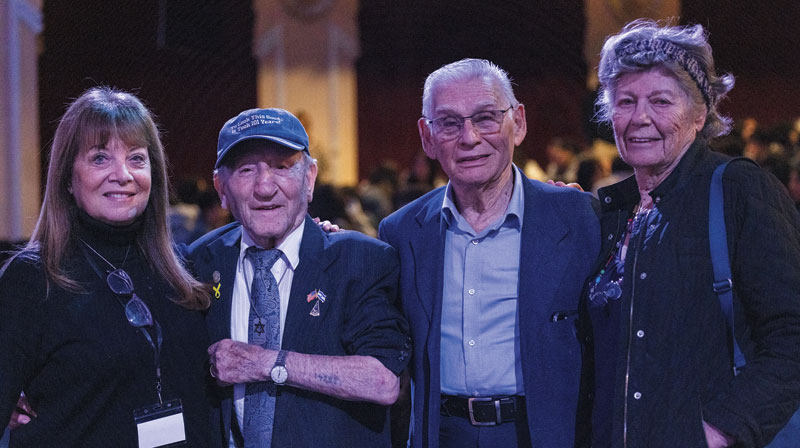

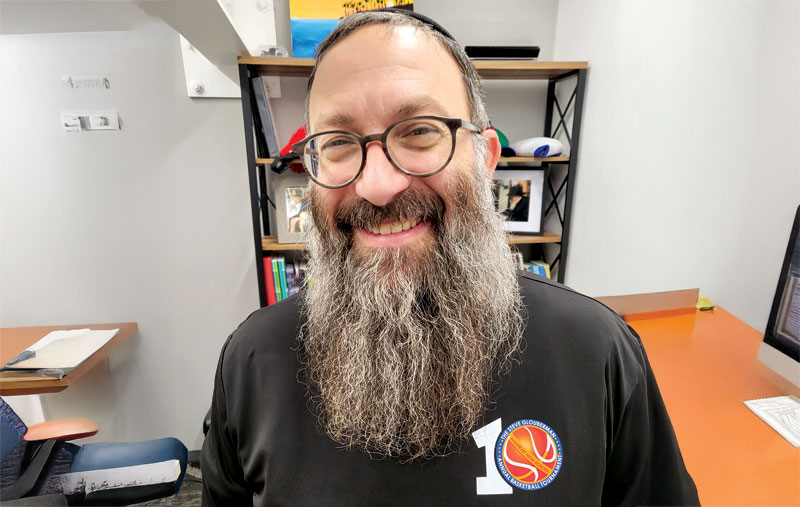





 More news and opinions than at a Shabbat dinner, right in your inbox.
More news and opinions than at a Shabbat dinner, right in your inbox.